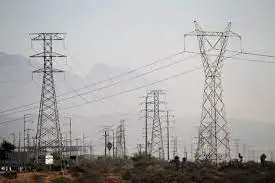B.C. premier touts carbon tax
By Toronto Star
NFPA 70e Training - Arc Flash
Our customized live online or in‑person group training can be delivered to your staff at your location.

- Live Online
- 6 hours Instructor-led
- Group Training Available
"It doesn't mean the end of your political mandate," Campbell told a news conference, when asked what other premiers could learn from the tax.
Campbell's Liberal government established the surcharge, the first in North America, last year.
"We understood when we did it that it was going to be challenging but, you know, whenever you do something that's significant it's going to be challenging."
In winning their third straight majority government, the B.C. Liberals took 49 of the 85 seats in the legislature, while the NDP won 36.
At dissolution, there were 45 Liberals and 34 New Democrats in the legislature. The addition of six electoral districts boosted the number of seats in the legislature to 85.
Voter turnout was about 50 per cent, with an electorate more focused on the Vancouver Canucks' playoff run than a campaign in which no dominant issue emerged.
A referendum on electoral reform in which voters could opt for a new way of electing politicians was also defeated. Only 39 per cent of voters supported the proposed single transferable vote (STV) system – 60 per cent support was required for the system to be adopted.
Under the proposal, voters would rank their preferences. The candidate who was the first choice of most voters would win a seat, and others would be allocated based on voters' preferences.
The current first-past-the-post system awards a riding to the candidate who gets the most votes, even if a majority of voters opted for other candidates in the riding.
Campbell said that after two attempts at electoral reform, voters have made it clear they don't want to move to an STV system. The choice was also on the ballot in the 2005 B.C. election, when it lost narrowly with 58 per cent support.
Bruce Hallsor, co-chair of the BC-STV campaign, said the results are disappointing, but there is still clearly an appetite to change the way politicians are elected. "No one is suggesting that we rush into another referendum, but clearly we have to look at all the options," he said.
David Schreck, secretary treasurer for the No side of the campaign, said voters rejected STV because the system would have led to an unbalanced legislature and the process is difficult to understand.
Schreck, who was an adviser to the last two NDP premiers before the party's defeat in 2001, said there is no call for the immediate resignation of NDP Leader Carole James, despite her second straight electoral defeat.
"She exceeded expectations in maintaining the status quo and not losing seats. She deserves credit for that," said Schreck. "The caucus will be judged on their performance in the upcoming sitting."
James brought the NDP to a stronger-than-expected showing in the 2005 provincial election, and has been credited with reviving a party that held only two seats after the 2001 election.
James told supporters the opposition has been a strong voice and will continue that in the next session. She later told reporters she will spend the next few days thinking about the future.











